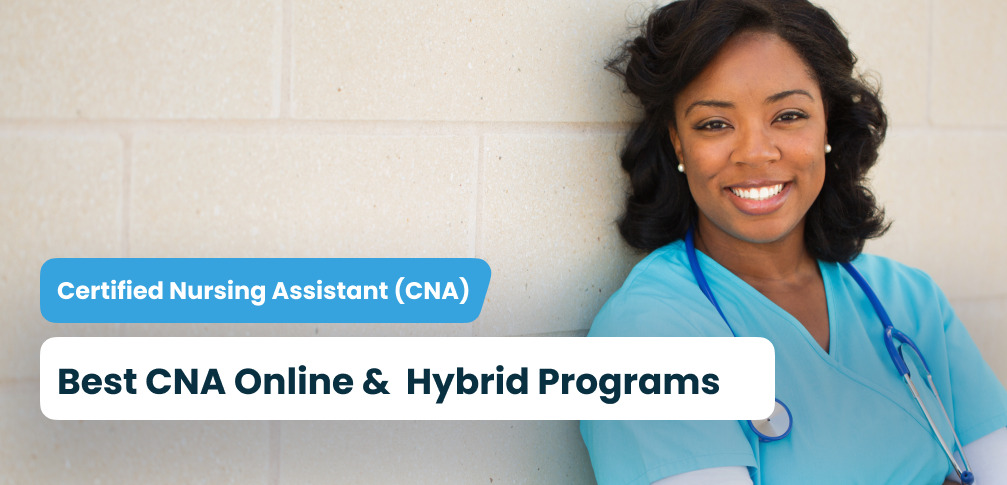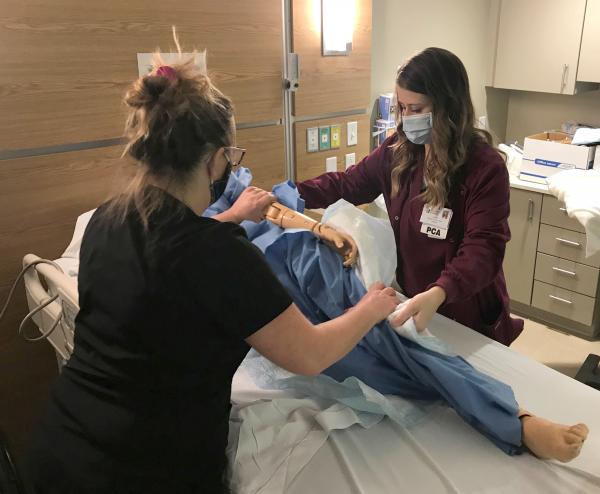CNA Classes: Myths Future Students Should Avoid
Wiki Article
How CNA Classes Can Assist You Launch an Effective Occupation in the Medical Field
CNA classes act as a fundamental stepping stone for individuals aiming to get in the medical field. These programs impart crucial skills, including efficient interaction and individual care methods. Pupils take part in hands-on training, connecting concept with functional application. As the need for health care specialists grows, the function of a Certified Nursing Assistant becomes increasingly substantial. This raises concerns about the numerous occupation courses and development chances that lie ahead for those who complete their training.
Comprehending the Duty of a Certified Nursing Assistant
The role of a Certified Nursing Assistant (CNA) is important to the healthcare system, serving as an essential link in between clients and clinical team. CNAs mainly assist individuals with daily tasks such as showering, dressing, and eating, guaranteeing their convenience and dignity. They are frequently the initial point of contact for patients, giving vital psychological support and friendship. In enhancement to individual care, CNAs are in charge of keeping track of clients' vital indicators, reporting adjustments in problem to taking care of personnel, and maintaining patient records. Their jobs encompass making sure tidiness in client atmospheres and aiding with flexibility. This role calls for a caring disposition, solid interaction skills, and the capability to function efficiently under stress. By facilitating a smooth operations within medical care settings, CNAs play a considerable component in boosting the general client experience and sustaining the more comprehensive medical group in delivering high-grade care.Trick Skills Acquired in CNA Classes
CNA classes furnish trainees with essential abilities necessary for providing premium client treatment. Among the key skills created works interaction, allowing CNAs to interact compassionately with people and plainly relay information to medical care teams. Students additionally discover vital thinking, which assists in examining client needs and reacting suitably in numerous scenarios.In addition, CNA programs stress personal care skills, encompassing support with everyday living activities such as bathing, dressing, and feeding - CNA Classes. Infection control strategies are another vital element, making certain that pupils understand just how to maintain a secure atmosphere for both people and themselves
Trainees gain expertise in standard medical terms, helping with better understanding of health care techniques. Time administration skills are grown to assist CNAs prioritize jobs successfully. Overall, these key abilities form the foundation for a successful job in the clinical area, preparing students to meet the diverse requirements of people.

The Advantages of Hands-On Training
Gaining functional experience through hands-on training is crucial for aspiring CNAs, as it links the gap in between theoretical expertise and real-world application. This immersive understanding strategy allows pupils to develop vital abilities needed for person care, such as efficient interaction, empathy, and technical capacities. Engaging in real-life situations allows trainees to comprehend the characteristics of a health care setting, fostering self-confidence in their capacities.Moreover, hands-on training aids students come to be aware of crucial devices and procedures, guaranteeing they are well-prepared for the difficulties of the work. It additionally provides chances to obtain immediate comments from teachers, enhancing the discovering experience. By functioning directly with individuals under supervision, aspiring CNAs can sharpen their observational abilities and learn to reply to different circumstances suitably. Ultimately, hands-on training equips these future healthcare experts with the capability and assurance necessary to be successful in their functions.
Job Opportunities After Coming To Be a CNA
Countless job opportunities wait for people that finish their CNA training, opening up doors to various roles in the healthcare sector. Certified Nursing Assistants (CNAs) are crucial members of the medical care group, giving straight individual care in settings such as healthcare facilities, nursing homes, and helped living facilities - CNA Classes. Their obligations can include assisting with daily living activities, checking important indications, and providing psychological support to clientsPast standard settings, CNAs might additionally discover opportunities in specialized locations, such as rehab facilities or home wellness care. Additionally, some might move into functions in administrative assistance or individual advocacy, leveraging their direct experience with people. The need for CNAs continues to grow, driven by a maturing populace and a raised emphasis on high quality client treatment. This high demand warranties that individuals entering the field have a range of alternatives to pursue, making it an eye-catching entrance point into a fulfilling occupation in healthcare.
Paths for Advancement in the Healthcare Field
Improvement in the medical care area offers multiple pathways for individuals seeking to improve their occupations past the duty of a Certified Nursing Assistant. After gaining experience, many CNAs opt to go after additional education and learning and qualifications, such as coming to be a Licensed Practical Nurse (LPN) or Registered Nurse (RN) This shift typically entails enrolling in bridging programs that recognize their existing skills.Additionally, specialized certifications in areas like geriatrics or pediatric next page medicines can open up doors to particular niche duties, boosting both job fulfillment and wage possibility. CNAs might additionally discover management placements, such as healthcare monitoring or individual treatment sychronisation, which utilize their frontline experience in a different capacity.
Constant professional growth with workshops and workshops can maintain CNAs upgraded on market requirements, making them more affordable candidates for improvement. As a result, the healthcare area offers numerous opportunities for growth, making it Go Here possible for CNAs to shape their career trajectories properly.
Regularly Asked Questions

For How Long Do CNA Classes Usually Require To Complete?
CNA classes usually take between 4 to twelve weeks to finish, depending upon the program structure. Variables such as program intensity, organizing, and the organization's curriculum layout can affect the overall period of training.What Is the Expense of CNA Training Programs?
The cost of CNA training programs differs commonly, usually varying from $300 to $2,000. Variables influencing this price consist of location, program size, and whether the training is used through community colleges or exclusive organizations.Are Online CNA Classes Available?
Online CNA classes are without a doubt readily available, providing flexibility for pupils. Numerous institutions give online training, enabling individuals to finish coursework at their very own rate while still satisfying the necessary demands for certification in nursing help.What Is the Certification Examination Process Like?
The certification exam procedure usually entails a written test assessing expertise and a skills presentation. Prospects must pass both elements to come to be certified, ensuring they satisfy the essential competencies needed for nursing aide Your Domain Name roles.Do I Need Prior Medical Care Experience to Enroll in CNA Classes?
Prior health care experience is not a requirement for enrolling in CNA classes. Individuals from different histories can get in the program, as it is developed to give extensive training and expertise necessary for successful accreditation and technique.Report this wiki page